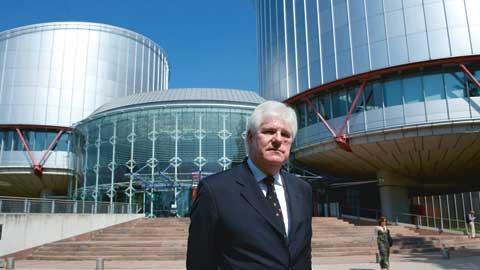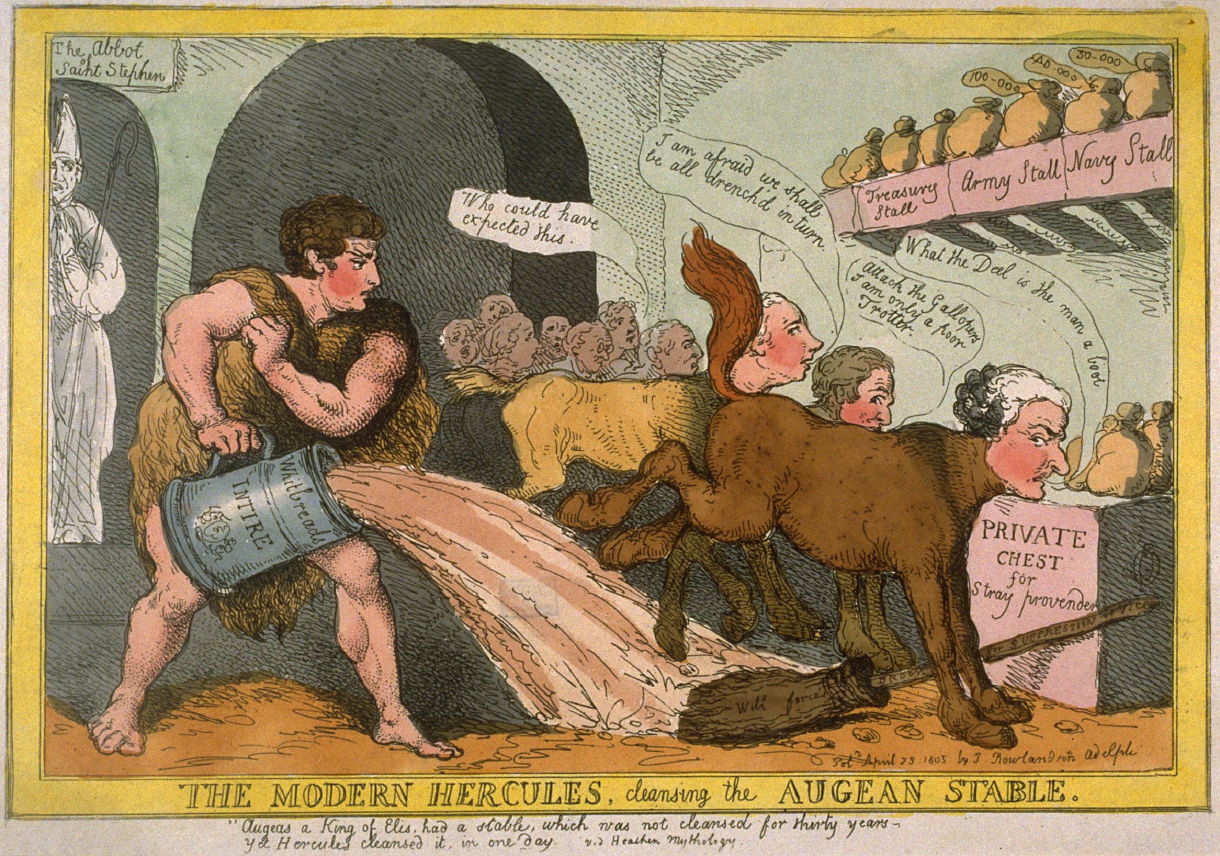

Former UK Judge at the European Court of Human Rights, Sir Paul Mahoney:
Now head of the EPO's Internal Appeals Committee
In 2017 (warning: epo.org link) following an unrelenting stream of adverse publicity both inside the EPO and outside, Battistelli was forced by the Administrative Council to reform the EPO's internal justice system.

The IAC has the unenviable task of cleaning out the Augean stables of the Battistelli era
"Somewhat belatedly the Mahoney-led IAC is getting around to dealing with the massive backlog of internal appeal cases that built up during the Battistelli era at the EPO."The system is far from ideal because the opinions issued by the IAC are only non-binding advisory opinions and the appointing authority is free to depart from them.
Also following a "reform" introduced by Battistelli which remains in force long after his departure, the appellant no longer receives an advance copy of the IAC's opinion when it is issued to the appointing authority as was the long-established practice prior to Battistelli. Nowadays a copy of the opinion is only provided to the appellant after the appointing authority has issued its decision.
"In a recent landmark case, the IAC issued an opinion belatedly excoriating an arbitrary and unprincipled act of censorship by Elodie Bergot which occurred almost four years ago in 2016."Strictly speaking any departure from the IAC's opinion by the appointing authority should be justified by reasons. But, hey, this is EPOnia where anything goes and where - to borrow a phrase from the ILOAT - "arbitrary, unprincipled or even irrational decision-making" was the ordre du jour under Battistelli.
Nevertheless it seems that the current EPO management under Campinos is generally more inclined to follow the opinions of the IAC than was the case under Battistelli.
In a recent landmark case, the IAC issued an opinion belatedly excoriating an arbitrary and unprincipled act of censorship by Elodie Bergot which occurred almost four years ago in 2016.

Sir Paul and his Committee were not amused by Bergot's censorship
"Four years down the road, in a unanimous opinion the IAC has found that the Office was wrong in refusing the publication of the two documents."The IAC confirmed that freedom of speech is part and parcel of freedom of association. Those freedoms are not absolute or unconditional and an organisation may take steps to prevent publications containing incorrect information, or statements impairing the dignity of international civil service or grossly abusing freedom of speech. However, such interferences by an organisation are subject to limits.
The IAC found it impossible to accept that two minor statistical deviations from actual official figures in the presentation objected to by Bergot were grave enough to justify the refusal to allow publication.
The IAC also confirmed that staff representatives are at liberty to criticise the EPO’s policies and actions, even sharply and robustly, as long as the language used is not injurious or defamatory. This is a perfectly legitimate manifestation of the political jousting between management and staff bodies that is part and parcel of the life of a healthy International Organisation.
"The IAC unanimously concluded that the censorship imposed by Bergot was neither appropriate nor proportionate and that the refusal to publish both documents was tainted by illegality."The IAC took the position that it is essential for staff members to have knowledge of the various positions discussed between EPO management and the Staff Committee on matters of general interest for staff. This ensures that EPO management can be exposed to a degree of accountability to staff in relation to policy decisions affecting them.
The IAC unanimously concluded that the censorship imposed by Bergot was neither appropriate nor proportionate and that the refusal to publish both documents was tainted by illegality.
In addition, it also found aggravating circumstances in the way that the EPO handled the CSC requests, by delaying a response and then failing to respond altogether.
The IAC also had "some difficulty in understanding" the EPO when it raised a receivability objection with no serious arguments at the appeal stage.
"So after almost four years of waiting the CSC has had a small taste of justice."The good news is that the new President of the Office, António Campinos, has decided to follow the opinion of the IAC. As a result, the CSC is finally allowed to publish the documents from October 2016 on the EPO Intranet!
So after almost four years of waiting the CSC has had a small taste of justice.
But what is even more remarkable about this case, is that the person responsible for trampling on the CSC's fundamental right to freedom of speech still remains in her position.
Back in June 2018, the ILOAT found Bergot guilty of masterminding a witch-hunt conducted against two SUEPO officials, one of whom was unlawfully dismissed from his position and the other who was unlawfully downgraded.

Fit for purpose as head of the EPO's HR department?
Some think not... but Madame Bergot still enjoys António's support

Why does Campinos continue to protect Bergot?
"It's a mystery how someone with such an egregious track record of trampling on the fundamental rights of staff can be allowed to remain in a senior managerial post at an international organisation like the EPO."What many people at the EPO are wondering is why Campinos is still protecting Bergot whose "fitness for purpose" as a principal director of the EPO's human resources department is clearly open to question. Some suspect that it is part of a secret unwritten deal with his predecessor Battistelli.
Over to you on that one, António... anything to say?
Or has the cat got your tongue? ⬆